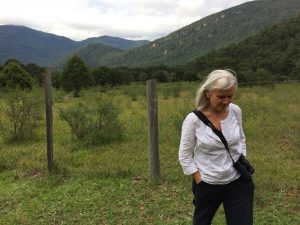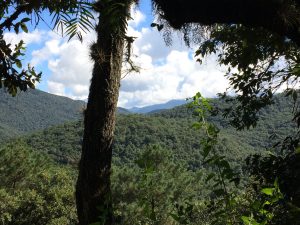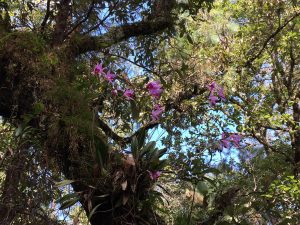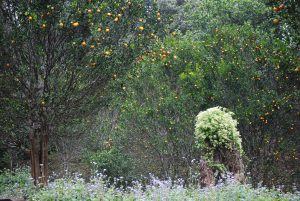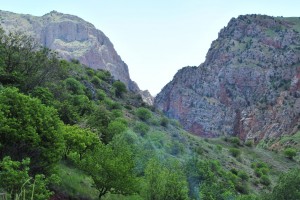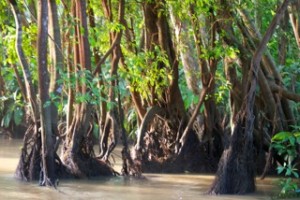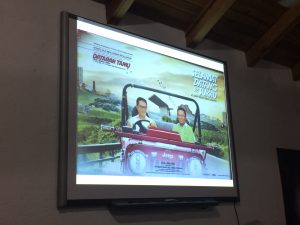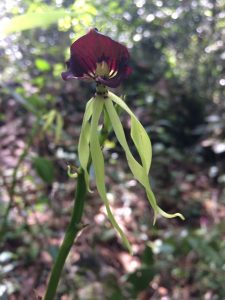I’m fresh back from a week in Mexico attending the World Land Trust Symposium and meeting the partner organisations with which it works. What a fabulous week. What a wonderful country and what incredible people (only a very special group of people react to the cry ‘rattlesnake’ by trying to elbow each other out of the way to get a better look). There are so many stories I heard last week, so many thoughts to share…but these are just a few. Do please click on the links and explore these wonderful places and conservation organisations :
The self deluding wraiths of climate change denial are still stalking the corridors of power in Washington and Westminster, muting the message that we need urgent change. It’s depressing. But its not the whole story. Around the world, people are just getting on with what needs to be done. Last week at the World Land Trust symposium in the Sierra Gorda Biosphere reserve, conservationists from around the world show cased projects that conserve biodiversity, lock up carbon and improve people’s lives.
Conservation is often seen as the enemy of development. How can we provide electric power, housing, jobs, education to growing human populations and still hang on to biodiversity? The answer is, more easily than you might imagine
For the last twenty years and more the Pedraza family, mum Pati Ruiz Corzo, dad Roberto
Pedraza Munoz and sons Roberto and Mario have devoted their lives to saving the forests of the Sierra Gorda, in Queretaro State in central Mexico, through their organisation Grupo
Ecologico Sierra Gorda GESG. The range of projects that GESG has instigated is amazing, and all of them have resulted in direct benefits for the people who live in the forests. Here are just a few: offsetting the CO2 outputs from municipal vehicles by safeguarding areas of forest; setting up the only locally run recycling network in Mexico; supporting over 200 organic vegetable growers to supply local markets with healthy food; using 20 million pesos generated from a local carbon and environmental tax to pay ranchers to keep cattle out of the forests plus constant projects in education, education, education for children, farmers, eco tourism operators. Jobs are being created, lifestyles improved, and the forests and all they provide – clean water, clean air and climate change mitigation- are protected. It is what Roberto junior describes as ‘ the conservation economy’.
One of the reasons – apart from sheer bloody minded determination and two decades of hard graft – that the concept of the conservation economy has taken root in the Sierra Gorda is that climate change is beginning to bite. Seasons are very clearly changing, with unfamiliar rainfall patterns and ever more severe droughts. There is a general sense that there is greater change
around the corner and the people and the land must be ready for it. One of the ways that GESG is building defences against the effects of drought is through its education programme for farmers. Using holistic land and animal management techniques drawn from tried and tested experts from all over the world farmers and ranchers in the Sierra Gorda have improved soil fertility and water holding, whilst reducing the inputs from expensive chemical fertilisers. Yields of corn have risen from 800kg/HA to 2000kg/HA and the same grass that once supported 800 cows now supports almost 3000.
Increasing the productivity of existing farmland takes the pressure off the forests, and in the forests, left undisturbed in turn help the farmers by providing clean water, and helping to keep rising temperatures under control. This faming model has proved so successful in Sierra Gorda that famers and ranchers all over Mexico are starting to get interested, including ranchers with holdings the size of British counties.
Time and again at the Symposium last week I heard about conservation projects that directly benefited people by providing jobs and creating sustainable businesses. In the Garo Hill’s in
NE India WLT partner, Wildlife Trusts of India, is helping local farmers changes from slash and burn agriculture to sustainably managed terraced plots and taking the heat off the forest by supporting new ways of making a living by rearing small livestock. Biofuel planting and organic growing in Armenia supported by WLT partner FPWC stems the needs for villagers to
use vulnerable diverse mountain pastures and cut old growth trees for fuel, while creating jobs and boosting the local economy. In the Garo Hills, in Venezuela and along the Kinabatangan River in Sabah,Borneo, funds raised for conservation and through carbon offsets create local jobs in tree nurseries, planting and forest restoration.
Much of this kind of progress depends on local
habitants and local governments seeing the natural environment around them in a different way, not as an obstacle to ‘development’ but as an invaluable resource providing the essentials of life – ‘ecosystem services’ – such as clean water. If a forest is proving your only water supply then isn’t it sensible to pay to make sure you keep your forest, especially when more frequent droughts threaten.
In Ecuador water quality and supply are big issues, especially so as the effects of climate change are being felt, and municipal authorities are under pressure from their electorate to keep supplies clean and constant. So WLT partner NC Ecuador saw an opportunity. They identified the watersheds – mountain forests whose rain gathering powers fed streams and rivers – providing water to 5 municipalities. Each municipality then passed a law to protect its water-giving forests and instituted a water fee on residents that can be used to purchase and protect forests, reforest damaged areas and protect soil. Renzo Paladines of NC Ecuador reported to the Symposium how 300,000HA of forest in Ecuador are now protected under this scheme. Soon, there will be 39 municipalities paying to keep their forests and their water supply and Renzo is looking for new partners in the mining industry as one tonne of extracted mineral requires 20 tonnes of water and without sustainable watersheds their business is done for. Over the border in Peru, Alex More of NC Peru is talking to farmers about their irrigation schemes and how to safeguard them by safeguarding forest.
Of course its not all good news. Small scale, people centred development offered by the conservation economy – or REAL development as I’d like it to be known – is not what makes big money for the people at the top of the economic tree. They still want their road-building-dam-erecting-forest-clearing-mega-bucks, and they are hard to resist. After 20 years of
working very successfully with local people in Borneo, Isabelle Lackman of HUTAN found locals turning on her organisation when it opposed the building of a huge new road bridge. The bridge will split the forest in two and fragment already vulnerable primate populations. Its impact could undo all the careful work in forest maintenance and reconstruction that Isabel and her team have done, and from which local people have benefited. The politician who is behind the bridge promises all sorts of fictional delights – but the truth is the bridge is to make life easier for oil palm producers, so they can plunder yet more of Borneo’s natural heritage, with no lasting benefit to the people who will be left with the big concrete monster on their doorsteps.
Luckily Isobel and people like her are determined and dedicated, not just to the forests and the wildlife but to the people who live there. Rodrigo Karate of Guyra Paraguay told me one last story before we went our different ways in Mexico city. Using funding from the Darwin Initiative, Guyra Paraguay are establishing plots of a native plant, yerba mate, the source of a health giving and highly prized tea. It will only grow under the shade of the rainforest and using the traditional expertise of the Mbya Guarani people who tend and harvest the crops.
Rodrigo explained that fifty years ago these people were being hunted by the government like animals. Now their isolated communities are very poor, with no access to education health care or even sanitation or a reliable food supply. The forest in which they live – 72,000 HA of the San Rafael reserve – is one of the most biodiverse on earth. The Guarani love their forest but poverty has forced them to clear plots of agriculture and for timber. The new project gives them a way to make a proper income from keeping their forest; it provides access to international markets for their tea already popular in the US and all over South America. The income this new trade will give both the Guarani and their forest, a brighter, more secure future, whilst also locking up a lot of carbon for the sake of the rest of us.
